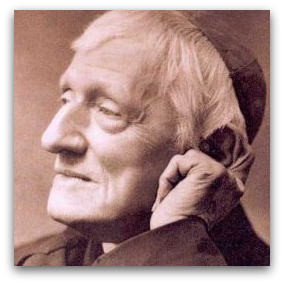Mixed Blessings on Anglican Road to Rome

[This appears also as the lead article in Eureka Street for October 23 '09]
There has been a wide range of responses so far, many of them understandably emotional, to the announcement that structures for Anglicans who wish full communion with the Roman Catholic Church are being prepared. In Britain the stakes are particularly high, since the timing of the move will affect current conversations within the Church of England about women bishops and how to accommodate dissenters.
Most of the focus has been on Anglicans, and particularly the conservative Anglo-Catholics who are likely to seek such unity. These have grown into a distinct strand of Anglicanism since the 19th century Oxford Movement, which sought first a revival of Catholic piety and theology drawing on both medieval English and later Roman sources, and ultimately led to the appearance of a movement focussing on liturgy and spirituality of great aesthetic and theological depth. That movement however became deeply divided over women’s ordination (and now also sexuality, despite the undoubted presence of many gay men among them).
Conservatives today view the more liberal wing of Anglo-Catholicism, embodied by the current Archbishop of Canterbury, with deep suspicion. Many of these are understandably relieved to have the prospect of recognition and stability of their liturgical practice, within the fulfilment of a long-held hope for visible unity with Rome.
Other Anglicans however are hurt and bemused, especially those who have committed themselves to ecumenical endeavour while expecting the integrity of existing Anglican structures to be respected.
And last but not least there will be an odd and brief consensus among both more liberal and more evangelical Anglicans, who will share relief at the prospect of a ‘rump’ moving along and leaving the main game in the current inner-Anglican struggle to them. This is likely to be the Australian experience, where most of those lining up to embrace the new structures either joined Anglican separatist groups long ago, or now huddle in a few embattled parishes.
But Roman Catholics will have their own mixed feelings too, sooner or later. One Roman Catholic colleague apologized to me at a meeting yesterday, obviously embarrassed by a gesture seen by many in both communions as undiplomatic at best. Many other loyal Catholics will share unease at this step away from a long and costly process towards greater mutual understanding and cooperation within the existing forms of Church we know. Christians in both Churches and others will wonder how to calculate the cost of unity-by-disunity.
Liberal Roman Catholics have particular reason to be perturbed at the influx of a group of ex-Anglicans who have self-selected, not so much by ecumenical zeal or real engagement with the life and faith of the Catholic Church, but dogged adherence to certain positions on gender roles and human sexuality which tend to bespeak a broader conservatism.
Of course others, especially conservatives, are rejoicing. The conservative Catholic blogosphere, where the enthusiasm of the convert is often very much in evidence, is hailing the move. They too, however, may have cause for circumspection when the new ‘ordinariate’ becomes reality. The prospect that these quondam-Anglicans can not only have married clergy but train new married seminarians, and maintain a liturgy related to the Book of Common Prayer, may be a mechanism in which some detect a ticking sound.
Unlike the Uniate groups like Eastern Catholics of various kinds, the Anglican ordinariate will breathe the same cultural and social air as standard Western-rite Catholicism, and the boundaries will be highly porous.
Will there not be Roman Catholic aspirants to ordination who find life in the Anglican ordinariate a more attractive prospect than clerical celibacy? Will there not be aspects of the Anglican Prayer Book tradition whose lex orandi continues to lead such Anglican-rite Catholics to different understandings of Church, ministry and sacraments than their Roman Catholic brethren (let alone the resurgent ‘extraordinary use’ sub-group)?
One of my late Jesuit teachers, Noel Ryan, told his classes that he believed the conversion of John Henry Newman—leader of the Oxford Movement which had such an impact on Anglicanism, before his change of allegiance—had a significant effect on the history of Roman Catholicism, including and especially on the spirit of Vatican II. Roman Catholicism will itself be affected by these moves; perhaps for better, perhaps for worse, but most likely both.


Comments
Post a Comment